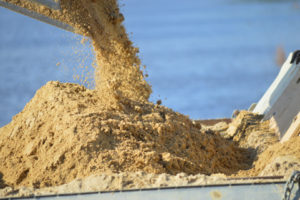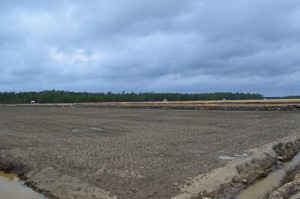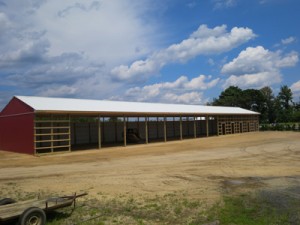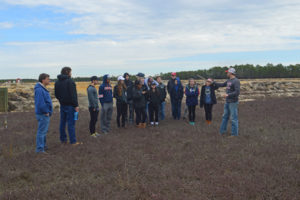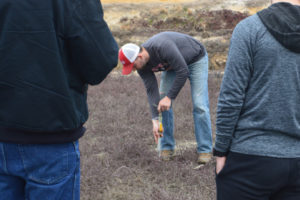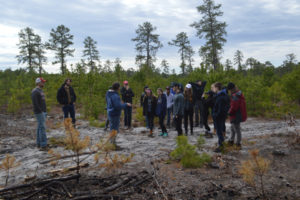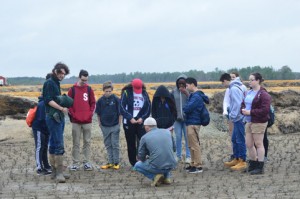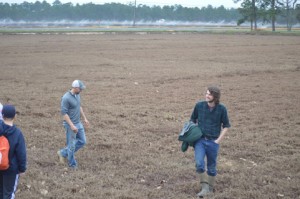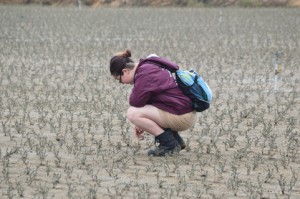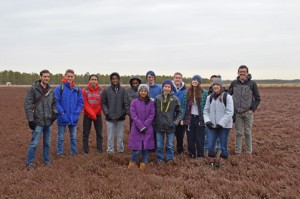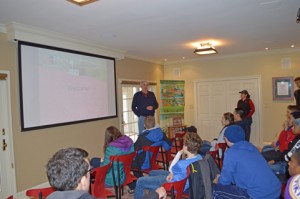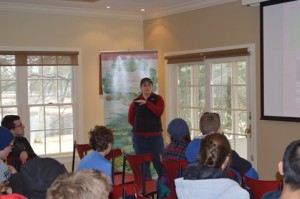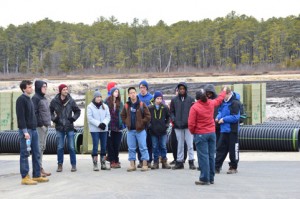This week, Pine Island Cranberry was very pleased to host a group of students from Moorestown Friends on their week-long Pine Barrens Intensive Learning experience. Per the MFS website, this particular IL unit provides student with the chance “to learn the unique history and culture of the nearby ‘Pinelands,’ the first National Reserve created by Congress. The area has also been designated by the United Nations as an International Biosphere Reserve. We will spend time hiking and exploring the forest as well as learning about the intriguing history of the area, including the Jersey Devil and the indigenous ‘Piney’ population.”
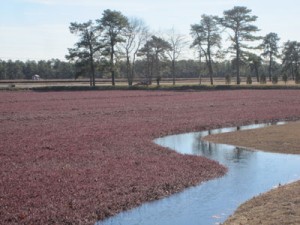
The morning started with a presentation by CEO Bill Haines on the history of the farm and some of the changes that have been made throughout the years. He spoke of the generations who came before and how each successive generation has since made its own mark. He explained why cranberries and blueberries are so essential to the Pine Barrens: because the growers understand the need for an abundant supply of clean water. “The key thing to know about this farm and this industry is the water supply,” he says. “Where does it come from, and where do we want it to go? And we’re fortunate that we have the opportunity to be here and to do that, because we understand that we need to protect all the resources here if we want to remain in business.”
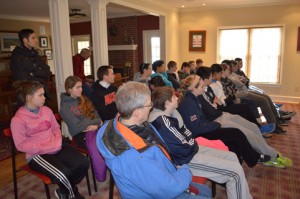
Bill then introduced PIICM manager Cristina Tassone, who started out with us as an intern seven years ago and now this year is making all the major crop decisions. Cristina’s presentation mentioned how her position is analogous to that of a parent: her job is essentially to be the caregiver of the crop. She also included the basic life cycle of a cranberry bog, starting with an explanation of sanding and why it works.
“Once the water comes off, we have an eight-member ICM team that’s in those bogs every day,” Cristina says. “All season long we’re walking in the bogs, checking to see what they need. We currently grow nine different varieties that require different management strategies due to growth stage, color of leaves, disease, and pest issues.”
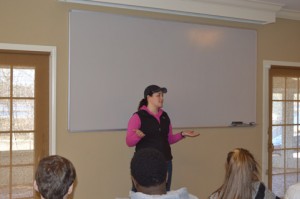
The group was surprised by some of the water management aspects, particularly the layout and how the bogs were interconnected via gates. They also asked some great questions about sustainability and the effect of cranberry farming on the water supply. And a lot of them enjoyed the next part of the presentation, which involved taking them out to a bog that has recently been drained in order to install sprinklers.
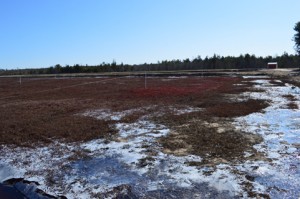
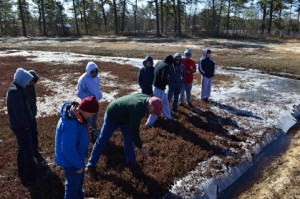
For their part, the students were able to tie in what they learned from us–the importance of clean water and sandy acidic soil–with other visits around the Pines this week, and got confirmation on the low impact of cranberry harvesting on the Pine Barrens ecosystem from their next stop at Pakim Pond.
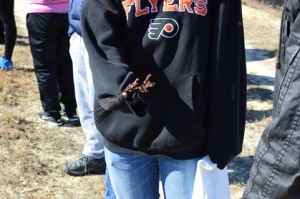
“It was great to have them out here,” says Cristina. “I absolutely love talking about what we do; it really is a unique opportunity to do this work on this scale. It’s fantastic for us, to be a local business with such deep roots available to educate as well as give students the chance to have a better understanding of what it takes to grow cranberries, not just assume we walk around in waders all day like the commercials. And it’s important to share the opportunities we have to offer as a future career possibility.”

